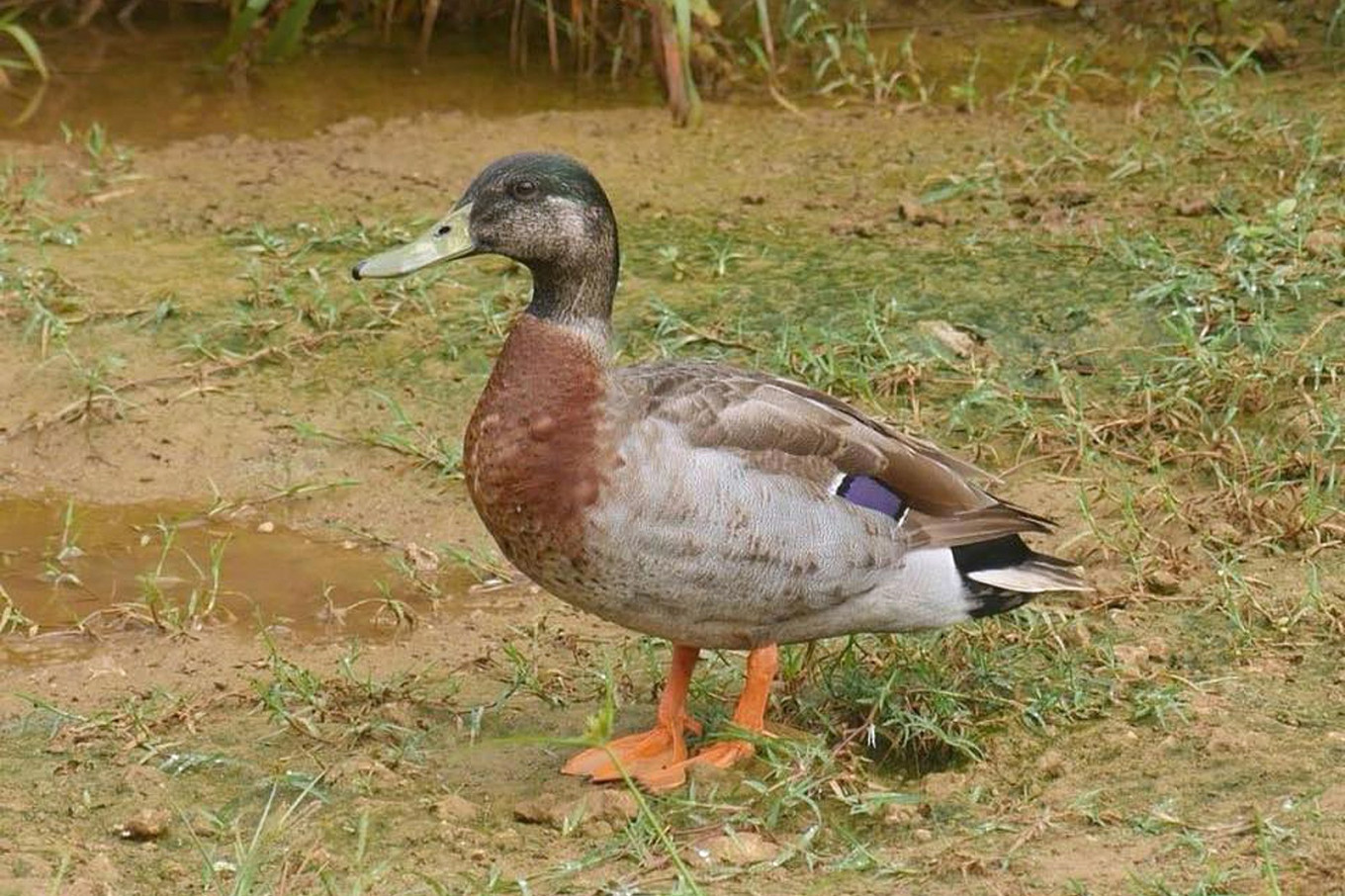'You bloody fool': Australian duck can imitate human sound
An Australian musk duck was able to memorise and reproduce sounds and speech -- imitating the noise of a door slamming and someone muttering the phrase "You bloody fool".
Change Size
 This handout photo taken in 2018 and released courtesy of Rae Finlay, the chief executive of the Niue Chamber of Commerce, to AFP on January 28, 2019 shows Trevor the duck on the Pacific island of Niue. (Courtesy of Rae Finlay/AFP/File)
This handout photo taken in 2018 and released courtesy of Rae Finlay, the chief executive of the Niue Chamber of Commerce, to AFP on January 28, 2019 shows Trevor the duck on the Pacific island of Niue. (Courtesy of Rae Finlay/AFP/File)
Move over parrots: scientists have stumbled across an impersonating bird whose repertoire goes well beyond demanding a cracker.
An Australian musk duck was able to memorise and reproduce sounds and speech -- imitating the noise of a door slamming and someone muttering the phrase "You bloody fool".
Biologist Carel ten Cate says he found it "hard to believe" when he discovered a claim that musk ducks could parrot human speech.
But he decided to go hunting to see if it was true.
Hours of searching through archives brought him to an eerie 1987 recording of "Ripper" -- a hand-raised specimen who was four years old at the time and living on the Tidbinbilla Nature Reserve, near Canberra.
"You bloody foo," the duck says, over and over, "You bloody foo," dropping the "l", which is apparently hard for ducks to articulate.
The sounds accompanied Ripper's mating display, according to the study published Monday in the journal Philosophical Transactions of the Royal Society B.
A male musk duck usually fends off competitors with repetitive sounds accompanied by kicking, while "the tail is kept in different positions".
Peter Fullagar, who made the recordings, would deliberately "enrage" the duck by approaching the cage, the report said.
Ripper would begin his dance -- but then quack out the insult instead of making ordinary duck noises.
And his vocal skills went further.
Fullagar also recorded Ripper imitating the sound of a light door slamming.
Sonogram analysis revealed the sound to be strikingly similar to one made by a screen door next to the sink, in which Ripper was kept as a duckling.
Ten Cate says the fact that Ripper reproduced sounds he most likely heard when he was young is a key finding of the research.
"Vocal learning of the type shown by Ripper was thought only to be present in songbirds, hummingbirds and parrots," he said.
Elephants vocalise too
Besides ducks, the special animal vocal learning issue of Philosophical Transactions delves into sounds made by elephants, dolphins and seals.
Research collected from adult African elephants in Botswana, South Africa, Germany and Austria explored their ability to reproduce specific trumpeting and snorting sounds on cue.
A male named Jabu who began learning to vocalise on cue when he was a calf was able to produce seven distinct sounds on cue with nearly 100 percent accuracy.
The other elephants who learnt in adulthood still managed to respond correctly over 80 percent of the time, suggesting a "complex level" of vocal on-cue learning in the species, the study says.









